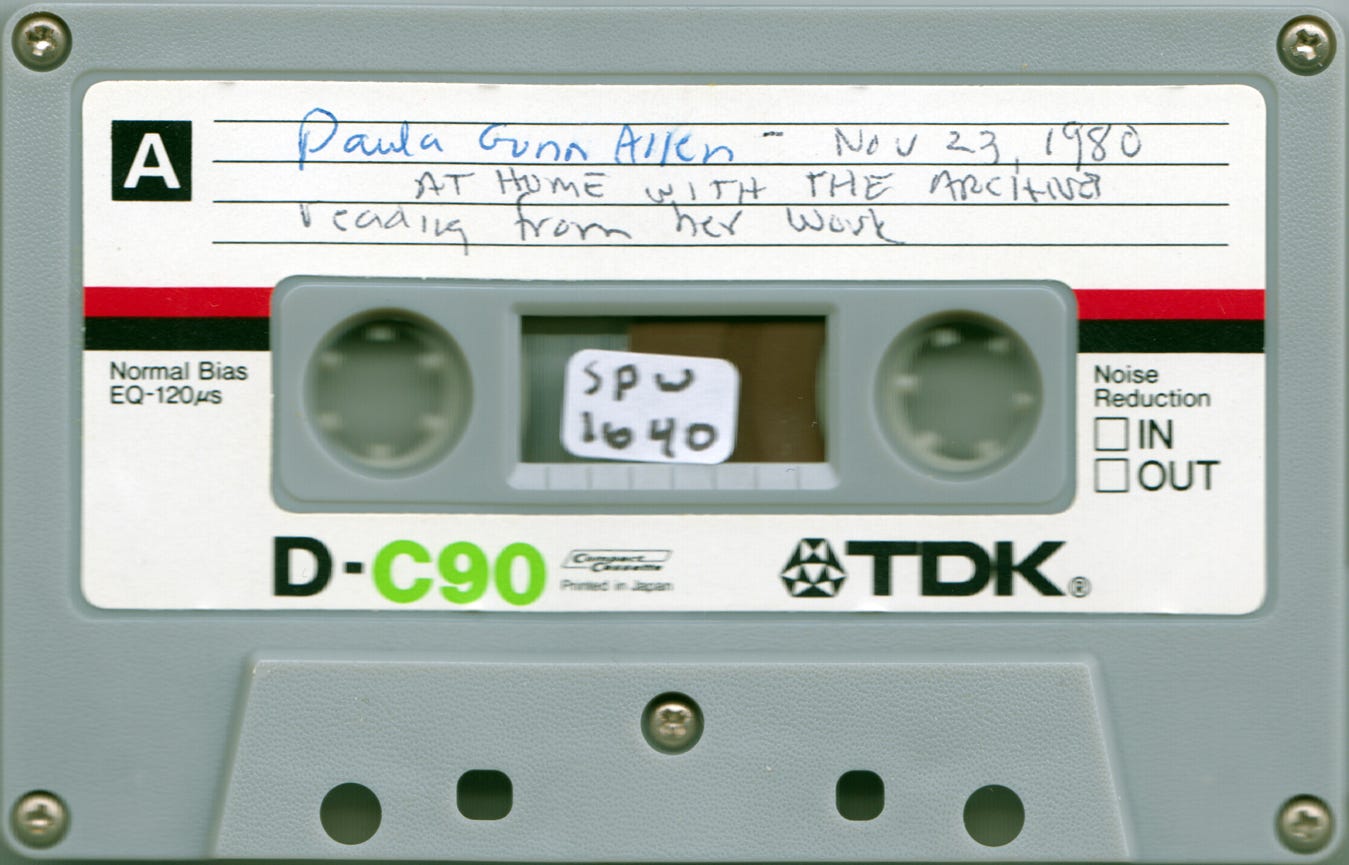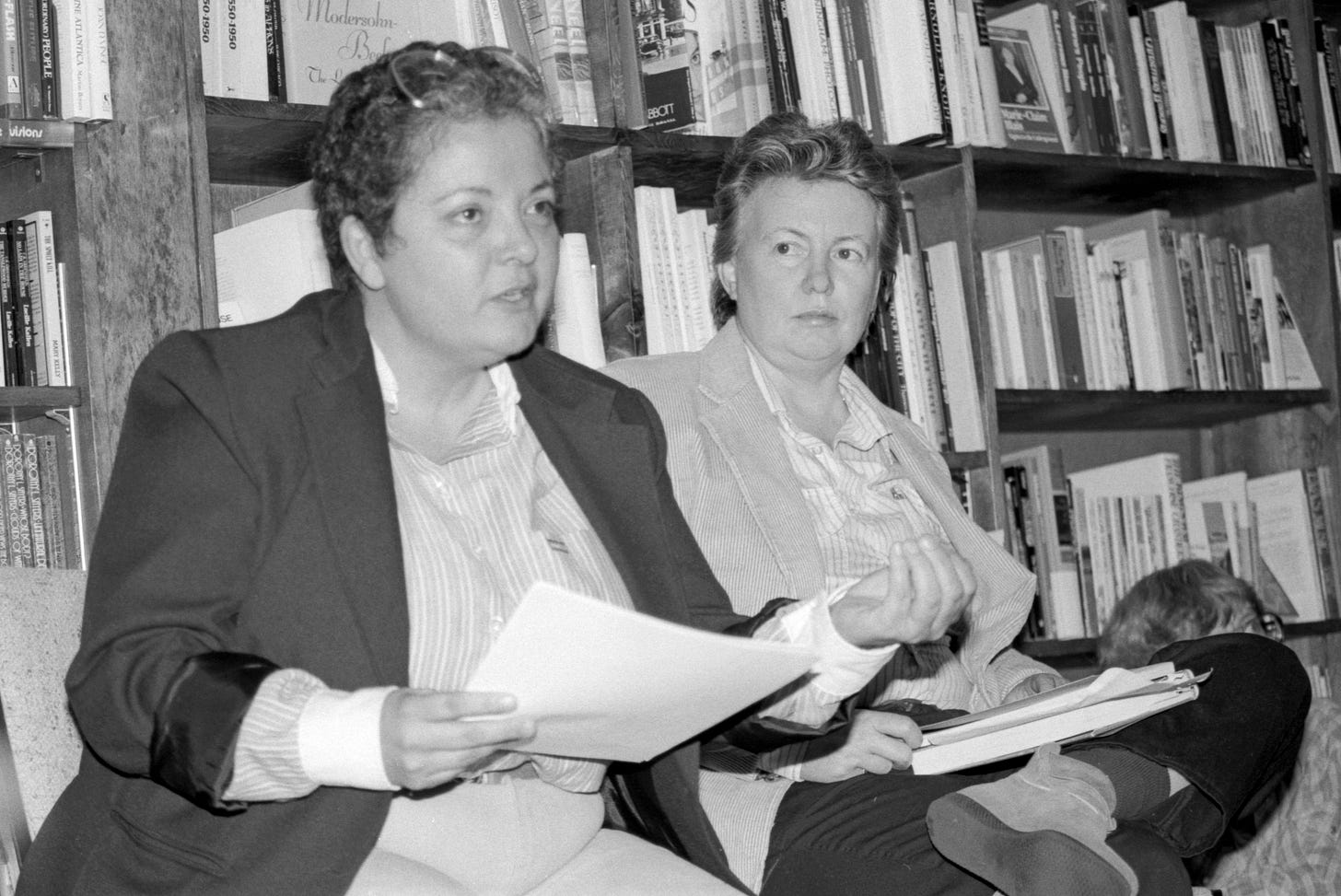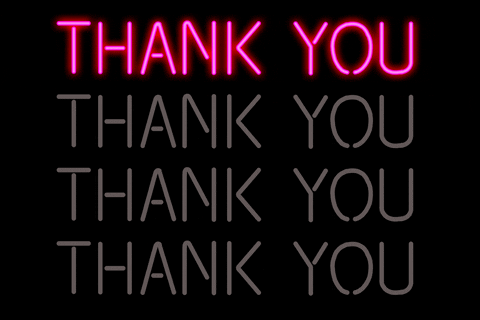How an Archivist Found Her Voice: The Impact of a Cassette Tape at the Lesbian Herstory Archive
Show and Tell: Colette Denali Montoya (enrolled member of Isleta Pueblo, descendant of San Felipe Pueblo)
This is a free post for subscribers of Landline. Consider subscribing to the paid plan to get my weekly email of recommendations and links, a podcast episode, and more! You can also help me spread the word by sharing it with a friend who would love it.
Collecting Stories is a feature of Landline that invites guests to share meaningful objects from their lives or work and tell the stories behind them.
Name: Colette Denali Montoya (enrolled member of Isleta Pueblo, descendant of San Felipe Pueblo)
Position: audio archivist, co-coordinator of the Audio Collection
Institution: the Lesbian Herstory Archives, Brooklyn, NY
Can you tell us about the Lesbian Herstory Archives?
The Lesbian Herstory Archives was founded in 1974 - it’s our 50th anniversary this year! (link leads to our website’s Our Herstory page) It is the oldest and largest repository dedicated to collecting lesbian materials in the world. Until 1993, the Lesbian Herstory Archives were housed in co-founder Joan Nestle’s apartment on Manhattan’s Upper West Side. In 1993, we opened our current space, a brownstone building in Park Slope, Brooklyn, to the public. The building was paid for entirely by community donations and was recently named as an NYC LGBT Historic Site. LHA does not take any government funding, as per our organizational principles. We operate as a collective of equal voices.
How did you get into your current role? What drew you to this work?
I started working at the Lesbian Herstory Archives as an intern in 2011, while I was in grad school for Library & Information Science. I was initially attracted to LHA because of my own queer identity. I loved that there is a repository that works exclusively with lesbian materials. As an organization, we hold materials by, for and about people with a personal relationship to a lesbian identity. We don’t police what “lesbian” means to our donors or visitors. Our collections hold materials from folks who identified as lesbians at some point during their lifetimes and from people who lived before that term was commonplace as a signifier of identity.
After my first semester as a cataloging intern, one of the other coordinators, Maxine Wolfe, reached out to the intern coordinator to see if anyone would be a good fit for a new digitization initiative for the audiocassette collection. I ended up working with Maxine as an intern. Then, I moved into a volunteer role after I graduated from library school. Eventually, I took over responsibility for the collection. I’ve been working with LHA interns, volunteers, and staff to digitize our collection of over 3,000 audiocassette tapes for more than 12 years now.
I was a nascent archivist even before I entered the profession. As a kid, I created a binder of subject headings for my classroom’s National Geographic collection. I didn’t know about controlled vocabularies, but I spent a lot of time with a spiral notebook reading each article and coming up with keywords! It makes sense that I ended up in this profession; I love organizing information. Even more so, I love helping people with their “information needs.”
What’s your favorite object in the collection?
My favorite object at the Lesbian Herstory Archives is an audiocassette tape from our Audio Collection, accession number 1640, and its associated digitized recordings of the Laguna Pueblo poet, Paula Gunn Allen (1939 - 2008), reading from her poetry.
Editor’s note: You can listen to Paula Gunn Allen reading her poem “Water” here:
(Audio courtesy of Lesbian Herstory Archive)
What is it?
The object is an audiocassette tape, SPW 1640, which was recorded at the Lesbian Herstory Archives on November 23, 1980 at one of the Archives’ “At Home” events - “At Home at the Archives with Paula Gunn Allen.” LHA does these events periodically ; we call them “At Homes.”

You can listen to the complete cassette tape here:
Side A:
Side B:
(Audio courtesy of Lesbian Herstory Archive)
What story does it tell?
Pueblo people have a long history of living under European settler-colonial regimes. In 1680, several Pueblo communities participated in the Pueblo Revolt, which expelled all the Spanish settlers, missionaries, and soldiers from Pueblo homelands for more than 12 years. They eventually returned, but many Pueblo lifeways, including our commitment to cultural secrecy, are direct responses to our histories as Indigenous peoples on occupied lands.
Paula Gunn Allen (1939 - 2008) was from Laguna Pueblo, which, like one of my two Pueblo communities, speaks the Keres language. Pueblo people do not share our languages openly. We also do not typically write our languages down. (The U.S. Department of the Interior’s Secretary, Deb Haaland, is a member of Laguna Pueblo and the first American Indian to be a member of the United States cabinet.)
Why is this item so meaningful to you?
I moved to Lunaapahkiing (so-called New York City) in 2007 and really struggled to find Indigenous community. I’m from two Pueblo tribes in New Mexico, Isleta Pueblo and San Felipe Pueblo. As someone born in the early 1980s, who came out as a teen in the 1990s, I never met another out, queer Pueblo person growing up. Lunaapahkiing, the Lenape homeland, has the largest population of urban Indigenous people in the U.S., but those 110,000+ people are scattered throughout the city. During my first decade living in New York, I didn’t have a sense of belonging in local Indigenous community.
One evening at LHA, around 2016, I put cassette tape #1640 into the recorder to digitize and heard a voice with a shockingly familiar cadence and feel. The tape turned out to be a recording of a November 1980 reading by Paula Gunn Allen of her poetry. Gunn Allen was a poet & scholar of Pueblo, Arab, and European settler descent. She was also a lesbian! I’d heard of Paula Gunn Allen and her work throughout my life, but I had no idea she was a fellow lesbian. I was stunned. I listened to the tape as I digitized it and then kept listening to the recording, over and over and over.
Hearing Gunn Allen’s voice on that tape pushed me to foment change in my life. I started to seek out Indigiqueer (the term “Indigiqueer” was coined by Plains Cree artist Theo Cuthand) community in Lunaapahkiing. Over the next few years, I signed up for a penpal from the Native Penpal Project, worked with an archival initiative at the United Nations Permanent Forum on Indigenous Issues, joined a collective for Indigenous women/ femmes, and ultimately fell in love with my penpal, Lenape artist Vanessa Dion Fletcher!
Vanessa and I just got engaged on winter solstice; I feel that I can trace my current Indigiqueer joy in my life back to the evening I digitized tape #1640.
Many of the archivettes at LHA talk about the presence of the “lesbian ghosts” of the people represented in our collections. That way of thinking isn’t really my jam, but I do believe that Paula Gunn Allen, my Pueblo, lesbian ancestor, reached out to me that evening to help me find my way.
Is there anything else you’d like to share about your show-and-tell item?
At the time of the tape’s recording in fall 1980, video cameras were expensive, so the Lesbian Herstory Archives documented many events and meetings on audiocassette tape. Audiocassettes are magnetic media, a remarkably stable format, but they can still be easily damaged when used by folks unfamiliar with the technology. I have been working on LHA’s audiocassette digitization project since 2012, so that the recordings on our 3,000+ tapes can be accessed by visitors on-site and remotely.
Many digitized recordings from the Lesbian Herstory Archives’ audio and video collections are available online through our partnership with the Pratt Institute School of Information.
Where can we learn more about this item and its history?
You can learn more about the Lesbian Herstory Archives on our website, our blog, our Instagram or our Facebook. Visitors to the archives can book appointments at this link.
Filmmaker Megan Rossman directed a feature-length documentary, The Archivettes, about the Lesbian Herstory Archives. It was released in 2018 and is available to stream on Kanopy.
If you’re local to the New York area, the archives hosts regular Lez Craft Nights on Thursday evenings. We also have merch, like tees and hats, available to purchase online.
About Colette:
Colette Denali Montoya, MLIS is an enrolled member of Isleta Pueblo and a descendant of San Felipe Pueblo, living in Lunaapahkiing (so-called New York City) and Tkaronto (so-called Toronto). She is an Indigiqueer librarian, archivist, and oral historian working at the intersections of oral history and memory.
As an audio archivist at the Lesbian Herstory Archives and university librarian, Colette endeavors to connect people with stories and knowledge. She coordinates the Lesbian Herstory Archives’ Audio Collection and its audio cassette digitization project. She is a graduate of the University of Wisconsin – Madison and earned her Master of Library and Information Science degree at the City University of New York – Queens College. Colette was a 2022 - 2023 Oral History Association - National Endowment for the Humanities Fellow; she worked with Indigenous oral histories surrounding Katahdin Woods & Waters National Monument’s Tekαkαpimək Contact Station.
Currently, Colette is exploring new research into the crossways of Indigenous and settler colonial languages through the lenses of Indigenous letter writing and depictions of Indigeneity in American and Canadian postage stamp art. Outside of academia, Colette loves exploring the material cultures of Indigenous and queer childhoods through her American Girl doll photography.
Call Me! (or not!)
I’d love to hear from you! Drop your thoughts in the comments to share with the Landline community, or reply to this email to contact me. You can also find me on Instagram, or email me. I don’t have a dedicated phone line yet (just like in my youth), but maybe someday I’ll achieve Claudia status and get a Landline.
Thanks for reading!
This is a free post for subscribers of Landline. Consider subscribing to the paid plan to get my weekly email of recommendations and links, a podcast episode, and more! You can also help me spread the word by sharing it with a friend who would love it. Thank you for being a friend!









